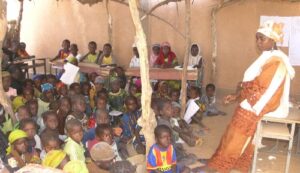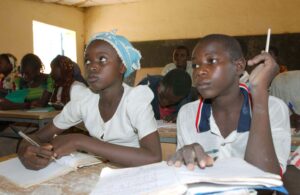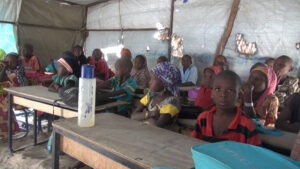By Will Beeker

In June, the World Bank approved an additional $230 million for Niger’s Learning Improvements for Results in Education (LIRE) project, bringing total funding to $370 million since the project’s inception. The funds will be used to build sustainable classrooms as well as girls-only boarding schools, with the aim of improving retention rates and closing the educational gender gap. The money will also be used to bolster educational planning and management in Niger over a six-year period.
The considerable funds come at a much-needed time, as the adult literacy rate in Niger was just 37% as of 2021. In every country across the Sahel, fewer than 50% of adult females are literate. Only 12% of children are enrolled in school and can read adequately for their age level. The Covid-19 pandemic exacerbated underlying problems in education systems across the world and many countries, Niger included, have not managed to fully recover. These funds will help the country make up lost ground.

What is the LIRE project?
In June 2021, Niger’s government teamed up with the World Bank to launch the LIRE project in Niamey. The project initially received $140 million in funding, so the additional $230 million is a significant increase. The financial assistance comes from the International Development Association, a World Bank fund that provides grants and loans for projects in the world’s poorest countries.
The LIRE project has five components:
1) Improving teaching practices
2) Promoting learning for girls and boys
3) Strengthening the management capacities of the education system
4) Handling the administration and coordination of the project
5) Funding responses to emergencies and unforeseen events

What will be done with the new funding?
The additional funds will primarily be used to build permanent schoolhouses. Building durable structures is important because many classrooms in Niger are made from straw and need to be disassembled during the rainy season. They are susceptible to fires during the dry season, making them dangerous for students and putting in jeopardy the availability of primary education for many. The project will work in coordination with the “zero class straw hut” program started by the Nigerien government last fall to provide safe, reliable places for students to learn.
In addition to upgrading school structures, improving access to clean drinking water is a vital part of boosting retention rates in schools across Niger, especially for young women who often miss school in order to help their mothers retrieve water for the family. Ultimately, the availability of clean water and educational access go hand in hand; investments in clean water are also investments in education.
https://data.worldbank.org/indicator/SE.ADT.LITR.ZS?locations=NE&most_recent_value_desc=false

